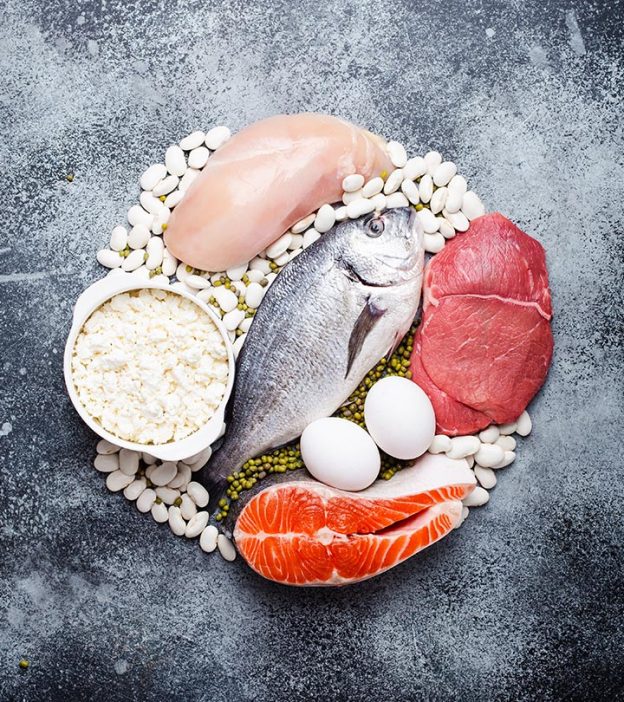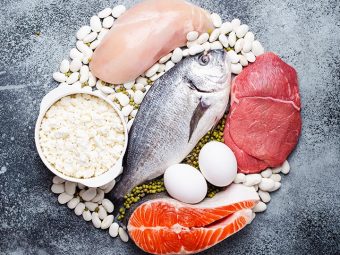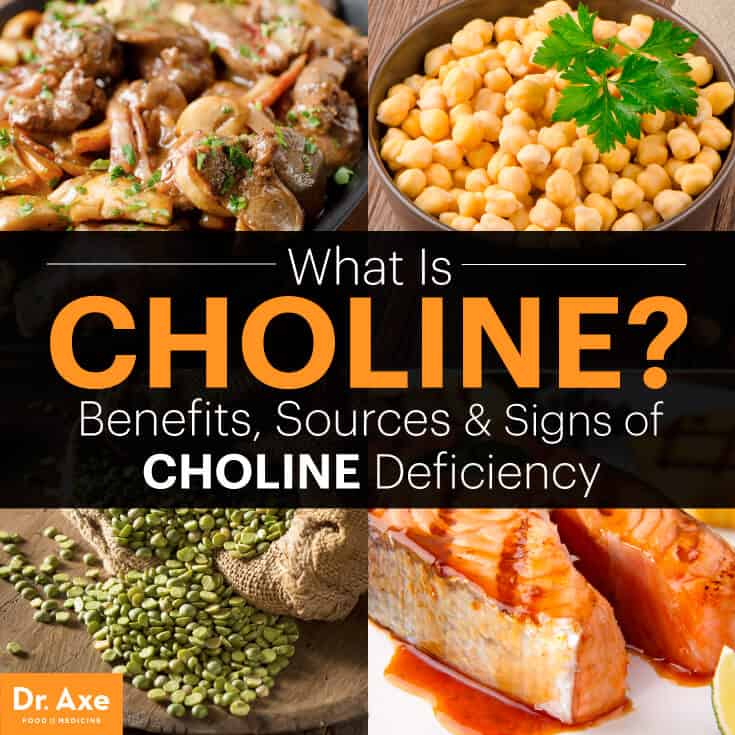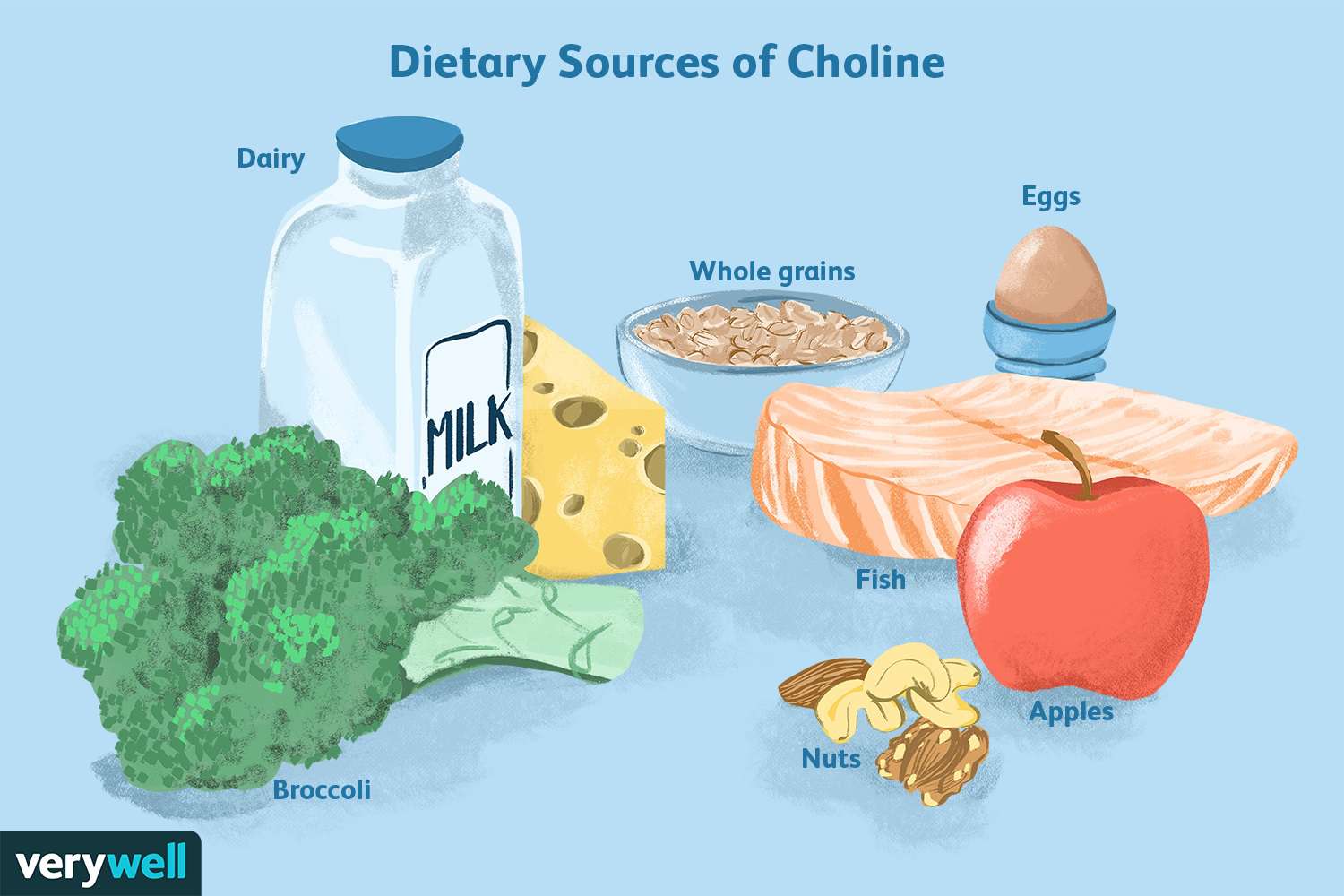Foods high in choline include cereal germ, eggs, liver, broccoli, cauliflower, and yolks, and choline deficiency can lead to liver and muscle damage and increase the risk of heart disease. There are various health benefits to consuming foods high in choline, such as improved brain function and enhanced heart health. Still, higher amounts of choline might increase the risk of cardiovascular disease.
Symptoms of choline deficiency include mood changes, anxiety, depression, and fatigue. If you have too little choline, you may also experience symptoms like feeling anxious or restless, a fatty liver, and muscle damage. Including choline-rich foods in your diet is essential to ensuring optimal health.

Introduction To Choline
Discover the top 10 foods high in choline and explore their numerous health benefits, such as improved brain function and enhanced heart health. Learn about the potential effects of choline deficiency, including mood swings and fatigue.
What is Choline?
Choline is an essential nutrient classified as a water-soluble vitamin, often grouped with the B vitamins. It plays a crucial role in the proper functioning of the body, particularly in brain development, nerve function, metabolism, and liver health.
Benefits Of Choline
Choline offers a wide range of health benefits. From improving brain function to supporting heart health, here are some of the key benefits:
- Improved Brain Function: Choline is a vital nutrient for brain health and cognitive function. It helps synthesize acetylcholine, a neurotransmitter that affects memory, learning, and mood.
- Enhanced Heart Health: Choline has been shown to reduce the risk of heart disease by helping lower cholesterol levels and prevent fat accumulation in the liver.
- Healthy Pregnancy: Choline is especially important for pregnant women as it supports fetal brain and nervous system development. It also helps prevent specific congenital disabilities and promotes healthy growth in infants.
- Liver Health: Choline plays a crucial role in liver function by removing toxins and preventing fat buildup in the liver. This can help reduce the risk of liver diseases such as fatty liver disease.
Signs And Risks Of Choline Deficiency
A choline deficiency can have various adverse effects on the body. Here are some signs and risks to be aware of:
- Mood Changes: Choline is involved in the regulation of moods, so a deficiency can lead to mood swings, anxiety, or depression.
- Fatigue: Choline is crucial for energy metabolism, so insufficient intake can result in feelings of tiredness and sluggishness.
- Muscle Damage: Lack of choline can contribute to muscle damage and weakness.
- Increased Risk of Liver Disease: Choline deficiency has been associated with liver and muscle damage, as well as an increased risk of developing non-alcoholic fatty liver disease (NAFLD).
To ensure you get enough choline to maintain optimal health, including choline-rich foods in your diet is essential. In the next section, we will explore ten foods high in choline that can help meet your daily requirements.
Foods High In Cholesterol
Foods high in choline are essential for maintaining overall health and well-being. Choline is an essential nutrient crucial to various bodily functions, including brain development, liver function, and nerve signaling. It also helps in the synthesis of DNA and cell membrane maintenance. Incorporating choline-rich foods into your diet can have numerous health benefits and prevent choline deficiency.
Meat, Fish, And Dairy
Meat, fish, and dairy products are some of the richest sources of choline.
| Food | Choline content (per 100g) |
|---|---|
| Beef liver | 418 mg |
| Chicken liver | 290 mg |
| Salmon | 72 mg |
| Eggs | 126 mg |
| Milk | 38 mg |
To increase choline intake, include lean meats like liver, chicken, and fish. Eggs and milk are also excellent sources of choline.
Fruits And Vegetables
While meat, fish, and dairy are known for their high choline content, several fruits and vegetables can also provide this essential nutrient.
- Broccoli: 63 mg of choline per 100g
- Cauliflower: 41 mg of choline per 100g
- Brussels sprouts: 41 mg of choline per 100g
- Spinach: 31 mg of choline per 100g
- Tomatoes: 10 mg of choline per 100g
Incorporating these fruits and vegetables into your daily meals can boost your choline levels and provide additional health benefits.
Other Sources Of Choline
In addition to meat, fish, dairy, fruits, and vegetables, there are other sources of choline that you can include in your diet.
- Legumes: Legumes like lentils and chickpeas contain decent amounts of choline.
- Nuts and seeds: almonds, peanuts, and flaxseeds are rich in choline.
- Whole grains: Foods like quinoa, oats, and wheat germ are good sources of choline.
Include these foods to meet your choline requirements and maintain optimal health.
Health Benefits And Deficiency Effects
Get the health benefits of choline from 10 high-choline foods and learn about the effects of choline deficiency. These foods, such as cereals, eggs, liver, broccoli, and cauliflower, can improve brain function, enhance heart health, and reduce the risk of certain conditions.
Choline deficiency may cause mood swings, fatigue, and other symptoms.
Improved Brain Function
Eating choline-rich foods can provide several health benefits, especially regarding improved brain function. Choline plays a vital role in producing neurotransmitters essential for brain communication and cognition. By increasing choline intake, individuals may experience enhanced memory, concentration, and overall cognitive performance.
Enhanced Heart Health
Choline also plays a significant role in maintaining heart health. Studies have shown that choline can help reduce blood pressure and decrease the risk of cardiovascular disease. Adequate choline intake helps regulate homocysteine levels, a compound associated with an increased risk of heart disease. By including choline-rich foods in your diet, you may be able to support a healthy heart and improve your overall cardiovascular health.
Effects Of Choline Deficiency
Choline deficiency can have severe effects on both physical and mental health. Without enough choline, individuals may experience mood swings, depression, and anxiety due to the role choline plays in regulating moods. Fatigue and lack of energy can also occur, as choline is involved in energy metabolism. Moreover, choline deficiency has been associated with liver and muscle damage, as well as an increased risk of non-alcoholic fatty liver disease (NAFLD).
To avoid the detrimental effects of choline deficiency, including choline-rich foods in your daily diet is essential. Eating eggs, liver, broccoli, and cauliflower can help meet your choline needs and support optimal brain function and heart health.

Credit: www.stylecraze.com

Frequently Asked Questions For 10 Foods High In Choline, Health Benefits, & Deficiency Effects
What Does Choline Deficiency Do?
Choline deficiency can lead to liver and muscle damage, increased risk of heart disease, and potential involvement in diabetes, cancer, and cystic fibrosis. Insufficient choline intake may result in mood swings, anxiety, depression, fatigue, and an increased risk of fatty liver and muscle damage.
It’s essential to ensure enough choline in your diet to maintain overall health.
What Are The Benefits And Side Effects Of Choline?
Choline can have benefits for heart health by reducing blood pressure. However, higher amounts of choline may increase the risk of cardiovascular disease. Choline deficiency can lead to mood swings, fatigue, anxiety, and muscle damage. They are getting enough choline from food sources such as meat, fish, dairy, eggs, fruits, and vegetables.
What Does Choline Deficiency Feel Like?
Choline deficiency can lead to mood changes like mood swings, anxiety, and depression. It can also cause fatigue and sluggishness due to its role in energy metabolism. Other symptoms include feeling anxious or restless, a fatty liver, and muscle damage.
What Happens If You Have Too Little Choline?
Choline deficiency can lead to symptoms such as anxiety, restless feelings, a fatty liver, and muscle damage. It may also result in mood swings, fatigue, and an increased risk of heart disease. Ensuring your choline intake is adequate to maintain overall health and well-being is essential.
Conclusion
Incorporating foods high in choline into your diet can have many health benefits. From improving brain function to enhancing heart health and reducing the risk of chronic diseases, choline is crucial in maintaining optimal overall health.
On the other hand, a choline deficiency can lead to mood swings, anxiety, fatigue, and even liver and muscle damage. Therefore, it is essential to prioritize choline-rich foods as part of a balanced diet to ensure you meet your body’s needs and promote optimal health and well-being.


